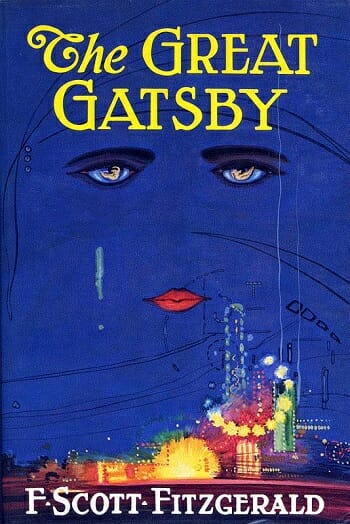The Great Gatsby

It may be impossible for The Great Gatsby to make it to the screen and still be The Great Gatsby. F. Scott Fitzgerald’s novel is such a slippery endeavor, such a combination of dueling character perceptions and unseen incidents, that by the time a filmmaker materializes it, some of its power unavoidably vanishes. Of course, you lose some things and gain others any time you adapt one medium to another, but Gatsby is about a deep, hollow longing lurking behind glitz and glamor. When you put it on the screen, it’s easier to show the frills than the subtle notes of melancholy.
Baz Luhrmann’s new film version of The Great Gatsby is stylish, slick, funny and entertaining—a bit detached at points, a bit overblown at others. That should be all that matters. A film must work on its own terms, and comparisons to the source ought not matter. Gatsby is a bit tricky, however, because it’s the kind of novel that lives in your mind long after you’ve put it down, that you can reread and find deeper meanings in each paragraph. Any adaptation is going to evoke the feelings the book created and spark a comparison. It’s then that the weak points start to reveal themselves.
Tobey Maguire stars as Nick Carraway, who watches tragedy emerge from the promise of the American Dream in his neighbor, Jay Gatsby. Leonardo DiCaprio plays this rich and mysterious neighbor, who has been obsessing over Nick’s cousin, Daisy (Carey Mulligan)—the one who got away—for five years, hoping to use his newfound wealth to woo her from her unlikeable, philandering husband,Tom.
Leonardo DiCaprio performs wonderfully in the title role, adding a much needed sense of suspicion to Gatsby’s backstory, which is a bit too tidy, his corroborating evidence too readily available. He embodies the act of trying too hard to sell a story. DiCaprio also portrays Gatsby’s longing for and obsession with the past, putting in a great performance even as the film chooses to swap tragic delusion for noble optimism.
Gatsby’s parties are epic endeavors, the kinds of things Luhrmann loves to direct: complete with elaborate platforms, singing, dancing, movie stars and light shows. If there’s one thing the film generates, it’s the excitement and freedom of sexy flappers and wasted money. Luhrmann also gets the social satire of the book and earns a lot of laughs, but in the end, it becomes all about the visuals. Just as he did with Moulin Rouge! (his only film that was perfectly suited to his talents), Luhrmann uses modern music to reflect the excitement of the era in a form to which modern audiences can relate. Music by producer Shawn “Jay-Z” Carter features prominently, while Luhrmann includes nods to the era’s great composers like George Gershwin and Cole Porter.
-

-

-

-

-

-

-

-

-

-

-

-

-

-

-

-

-

-

-

-

-

-

-

-

-

-

-

-

-

-

-

-

-

-

-

-

-

-

-

-








































